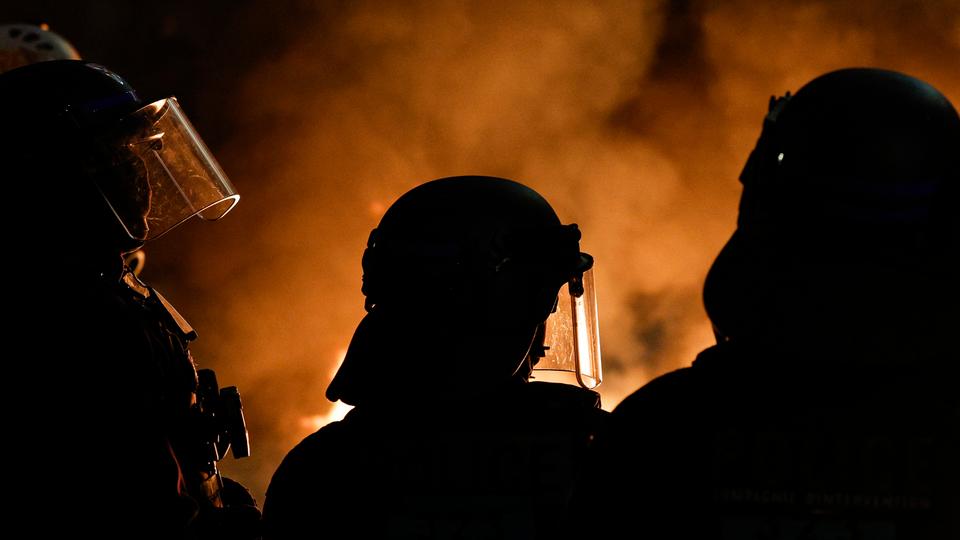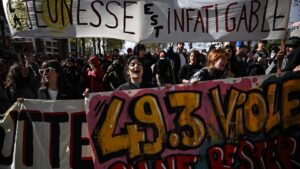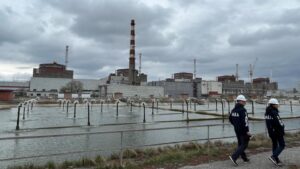France was rocked by impromptu demonstrations after the president’s speech on pension reform.
Emmanuel Macron spoke to the nation Monday evening in a televised address about the contested pension reform bill after signing it into law Saturday morning. The move came after the Constitutional Council on Friday ruled in favor of its most contentious part on raising the legal age of retirement.
Protesters gathered in many cities across the country during Macron’s speech to once more express their rejection as they have done since January, according to media reports.
While some used pots and pans to make noise, others set fire to dumpsters and e-bikes in Paris streets, the Le Monde daily reported.
Thousands also protested in cities such as Lyon, Rennes, Marseille, Nantes and Bordeaux, where tensions rose in some spots, the Le Figaro newspaper reported.
Paris police counted 2,000 protesters in the capital, and police used tear gas to disperse them, Le Figaro added.
READ MORE: Macron’s pensions reform enacted into law as French unions remain defiant
Macron’s speech
The president’s speech was anything but appeasing and he did not back down from his decision.
Macron expressed his will to turn the page on this reform and move on to other projects, noting that “the measures planned in the bill will progressively enter into force this fall.”
The head of state reiterated the need to enact the reform due to the increasing number of retired people and life expectancy.
“Is this reform accepted? Clearly no,” Macron continued. “Despite months of consultations, a consensus was not found, and I regret that.”
The president admitted that during the demonstrations, protesters not only objected to the reform plan but also to their living standards and soaring prices.
“No one – and especially not me – can remain deaf to those claims of social justice,” he said and explained that the nation must continue working to ensure its independence.
He also reconfirmed his invitation to the trade unions and employer organizations for Tuesday morning to discuss “essential topics” such as working conditions but not the pension reform, “and the door will always be open.”
Macron revealed his new projects: employment, immigration and improving the republican order, and progress to a better life.
He thus showed that the debate on pension reform was over for him.
Source of popular furor
The controversial pension reform plan was signed and promulgated Saturday in the Official Journal.
Macron signed the bill after the Constitutional Council finished its review late Friday despite demands by trade unions to drop the measure that has drawn weeks of protests.
The nine “sages” as they are known in France partially approved the bill while rejecting six of its measures, including those regarding senior workers.
The bill includes raising the retirement age from 62 to 64 by 2030, requiring at least 43 years of work to be eligible for a full pension, with workers and trade unions among others vehemently opposing the plan.
The government unveiled the reform proposal in January and it was taken up for parliamentary debate the following month even as millions took to the streets to oppose it.
Unrest intensified when Prime Minister Elisabeth Borne, after consulting with Macron, decided to use special constitutional powers to adopt the bill without parliamentary approval in March.
The decision was driven by fear that lawmakers would be able to block the reforms as the government lacks an absolute majority in the legislature.
READ MORE:
Fresh protests across France over pension reform ahead of key court ruling



















































Be First to Comment